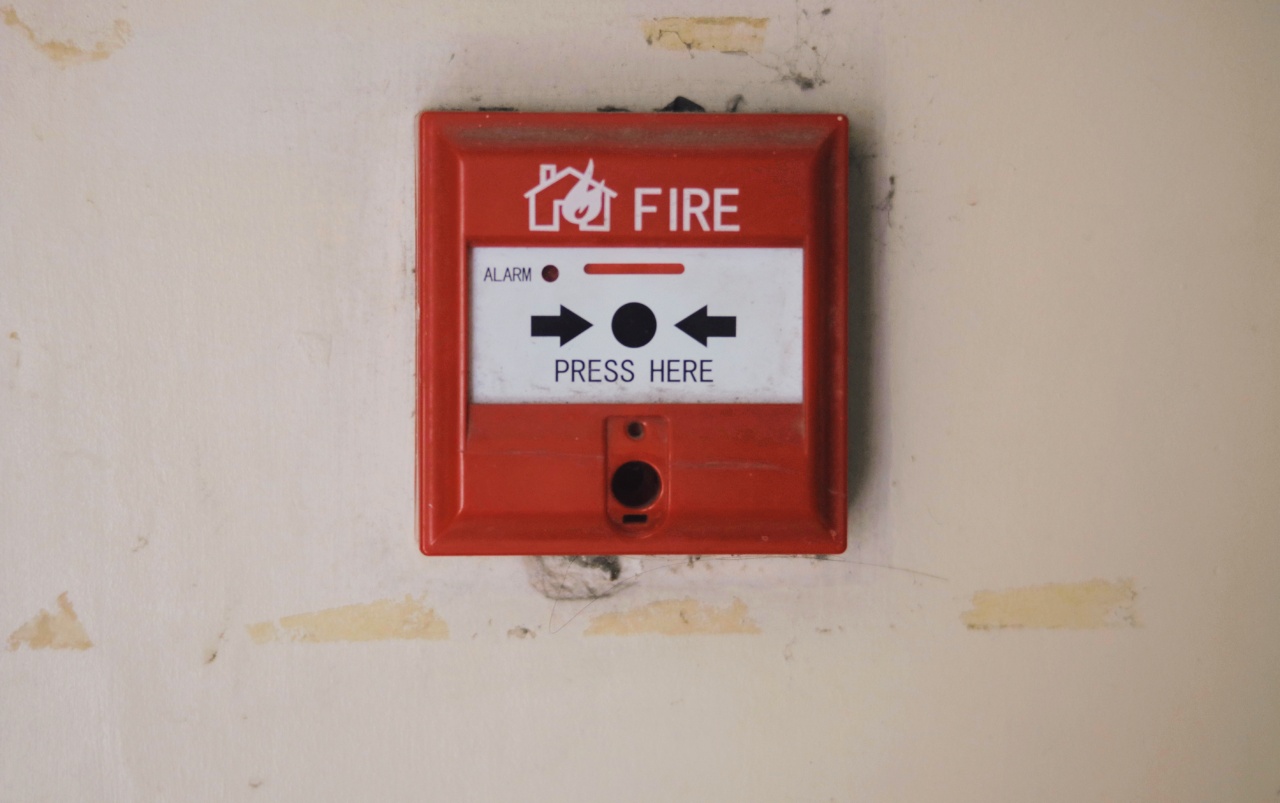Hemorrhoids are swollen blood vessels that form in the lower rectum or anus. They can cause pain, itching, and rectal bleeding, making them highly uncomfortable.
One of the leading causes of hemorrhoids is chronic constipation, where bowel movements are infrequent or difficult to pass. However, there are several steps you can take to prevent hemorrhoids associated with constipation.
In this article, we will explore various lifestyle changes and remedies that can help alleviate constipation and reduce the risk of developing hemorrhoids.
1. Eat a High-Fiber Diet
A high-fiber diet plays a crucial role in promoting regular bowel movements and preventing constipation. Fiber adds bulk to the stool, making it easier to pass. It also helps to soften the stool, thereby reducing the strain during bowel movements.
Include a variety of fiber-rich foods in your diet, such as:.
- Fruits like apples, berries, and bananas
- Vegetables such as broccoli, carrots, and Brussels sprouts
- Whole grains like oats, brown rice, and whole wheat bread
- Legumes such as lentils, peas, and chickpeas
- Nuts and seeds like almonds, chia seeds, and flaxseeds
Try to consume at least 25-30 grams of fiber per day to maintain healthy bowel movements.
2. Stay Hydrated
Proper hydration is essential to prevent constipation. When you don’t drink enough water, the body absorbs more water from the stool, making it harder and drier. This can lead to difficulty during bowel movements.
Aim to drink at least 8 glasses of water (around 2 liters) per day. If you engage in physical activities or live in a hot climate, you may need to increase your fluid intake even more to compensate for the loss of fluids through sweat.
3. Exercise Regularly
Regular exercise helps stimulate the bowels and promotes healthy digestion. It can also help decrease the amount of time it takes for food to move through the large intestine, reducing the risk of constipation.
Engage in activities that get you moving, such as walking, jogging, swimming, or cycling, for at least 30 minutes a day. Even simple exercises like stretching or climbing stairs can be beneficial.
4. Establish a Regular Bathroom Routine
Establishing a regular bathroom routine can help regulate bowel movements and prevent constipation. Try to visit the bathroom at the same time each day, preferably after meals, as this is when the digestive system is naturally more active.
Give yourself enough time in the bathroom without feeling rushed. Avoid delaying bowel movements when you feel the urge to go, as this can lead to harder stools and constipation.
5. Don’t Ignore the Urge to Go
Ignoring the urge to have a bowel movement can disrupt the natural rhythm of your digestive system. When you ignore the urge, the stool remains in the colon for longer, leading to increased water absorption and harder stools.
If you feel the urge to go, respond to it promptly and visit the bathroom. Ignoring the urge is especially common when traveling or in situations where using public restrooms may be inconvenient.
However, it is important to prioritize your bowel health and avoid constipation.
6. Avoid Straining During Bowel Movements
Straining during bowel movements can put excessive pressure on the rectal veins, increasing the risk of hemorrhoids. Avoid pushing too hard or spending excessive time on the toilet.
If you’re having trouble passing stool, try these techniques:.
- Increase your fiber intake to soften the stool
- Stay hydrated to avoid dry and hard stools
- Use a footstool or a Squatty Potty to elevate your feet and improve the positioning
- If needed, use a stool softener or a gentle laxative under the guidance of a healthcare professional
7. Practice Good Toilet Habits
Adopting proper toilet habits can ensure smooth bowel movements and reduce the risk of constipation. When using the toilet:.
- Sit in a relaxed position, with your feet flat on the floor or supported by a footstool
- Avoid straining or holding your breath while passing stool
- Wipe gently with moistened toilet paper or consider using baby wipes to avoid irritation
- After wiping, rinse the anal area with water or use a bidet to keep the area clean
8. Manage Stress Levels
Stress can disrupt the normal functioning of the digestive system, leading to constipation. Finding healthy ways to manage stress can help prevent constipation-related hemorrhoids.
Try incorporating stress-management techniques such as:.
- Deep breathing exercises
- Meditation or mindfulness
- Regular physical activity
- Yoga or tai chi
- Engaging in hobbies or activities you enjoy
9. Avoid Prolonged Sitting
Sitting for long periods can restrict blood flow to the rectal area and contribute to constipation. If your lifestyle involves prolonged sitting, make sure to take frequent breaks and move around.
Consider incorporating these habits:.
- Stand up and stretch every hour
- Take short walks during your breaks
- Use a standing desk, if possible, to alternate between sitting and standing
10. Seek Medical Advice
If you consistently struggle with chronic constipation or experience recurring hemorrhoids, it is important to seek medical advice.
Your healthcare provider can evaluate your condition, rule out any underlying causes, and provide appropriate treatment options to help prevent hemorrhoids and manage constipation.
Remember, prevention is key when it comes to hemorrhoids caused by constipation. By adopting healthy lifestyle habits, you can maintain regular bowel movements and reduce the risk of developing these painful and bothersome vascular structures.





























